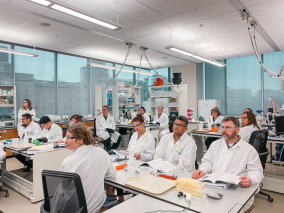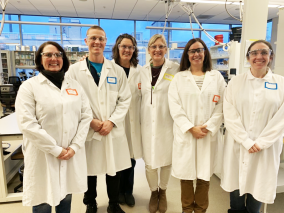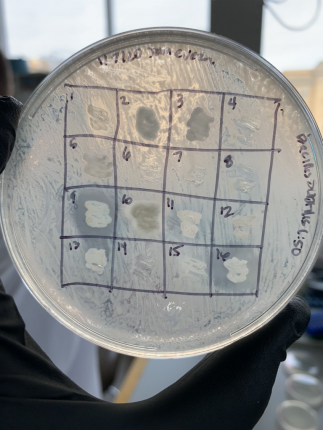Waukee APEX is joining the push to mitigate one of the most critical public health crises facing the world: antibiotic resistance.
There is a diminishing supply of antibiotics to treat the increasing number of antibiotic-resistant bacterial infections. This critical worldwide health crisis is extremely concerning given that our current arsenal of antibiotics is proving to be rather useless, and only a few new classes of antibiotics have been created since the 1970s. In fact, most pharmaceutical companies have abandoned the search for new antibiotics as a result of dwindling profit margins and long timelines for FDA-approval.
To combat the antibiotic resistance crisis scientists have united in a global effort to discover novel antibiotics by examining soil microorganisms collected from a variety of local environments. Why soil you may ask? Many of the most commonly prescribed antibiotics were discovered from “dirt.” Soil microbes produce two key antibiotics, Penicillin, and vancomycin. Imagine, a single handful of soil contains more living organisms than there are people on our planet!
Students at the Waukee APEX Research Laboratory, along with students from more than 270 participating schools across 44 US states, Puerto Rico, and 19 countries, are a part of the student sourcing efforts established by the University of Wisconsin-based Tiny Earth network. The students gain hands-on research experience in the Medical & Bioscience Research course to address the worldwide health crisis of antibiotic-resistant bacterial infections. This international collaboration harnesses the collective power of student researchers across the globe to discover new antibiotics from soil microorganisms. Tiny Earth is an ambitious and innovative project that allows students to engage in authentic research to address a real-world problem. Students feel a sense of ownership of their discoveries because the soil is from their local environment, at a site of their choosing, and they also feel a sense of belonging in the greater scientific community. Research has shown that students who engage in authentic research experiences are more likely to pursue and persist in science, technology, engineering, and math (STEM) fields.
Dr. Holly Showalter, Waukee APEX instructor, recently attended the Tiny Earth Partner Instructor Training at the University of Wisconsin-Institute of Discovery. She explains, “The instructor training combined with this exciting partnership has given me the tools and resources to bring real-world antibiotic discovery projects to my Waukee APEX Associates. Further, the student sourcing initiative will be a great opportunity for my student associates to learn scientific skills and also contribute to solving the antibiotic resistance problem our world faces currently.”



